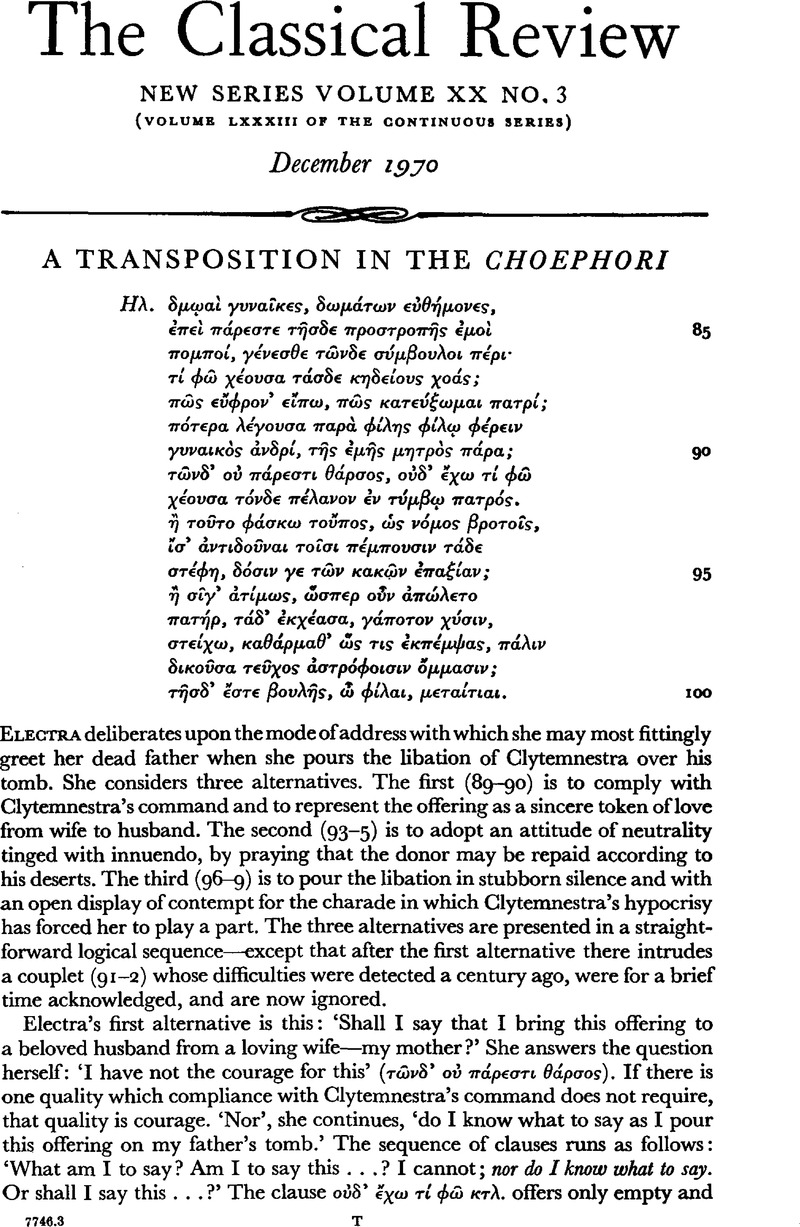No CrossRef data available.
Article contents
A Transposition in the Choephori
Published online by Cambridge University Press: 27 February 2009
Abstract

- Type
- Review Article
- Information
- Copyright
- Copyright © The Classical Association 1970
References
1 Those who keep the lines in the traditional order are obliged to interpret θ⋯ρσΟς not as ‘courage’ but as ‘impudence’ (from Agamemnon's point of view). ‘In Bezug auf die erste Alternative müβte es “Frechheit” sein, und paβt wirklich nicht hinein, als den Gedanken der Sprecherin ganz fernliegend.’ Like Blass, I do not see how, without violent mental contortions, one can interpret θ⋯ρσΟς as ‘Frechheit’. Nor indeed does θ⋯ρσΟς have a pejorative meaning in tragedy. But I am well aware that arguments of this kind will not move Verralls and Tuckers.
2 Blass goes astray in translating Οὐδ' ἔχωτ⋯ ø⋯ as ‘ich kann gar nichts sagen’—‘I can say nothing at all’ (‘da die ganze Spende zu unnatürlich ist’). That is to translateΟὐδ'ἔχω τ⋯ ø⋯ναι Electra is not declaring her inability to adopt any form of address; she is declaring her inability to find the correct form of address.


